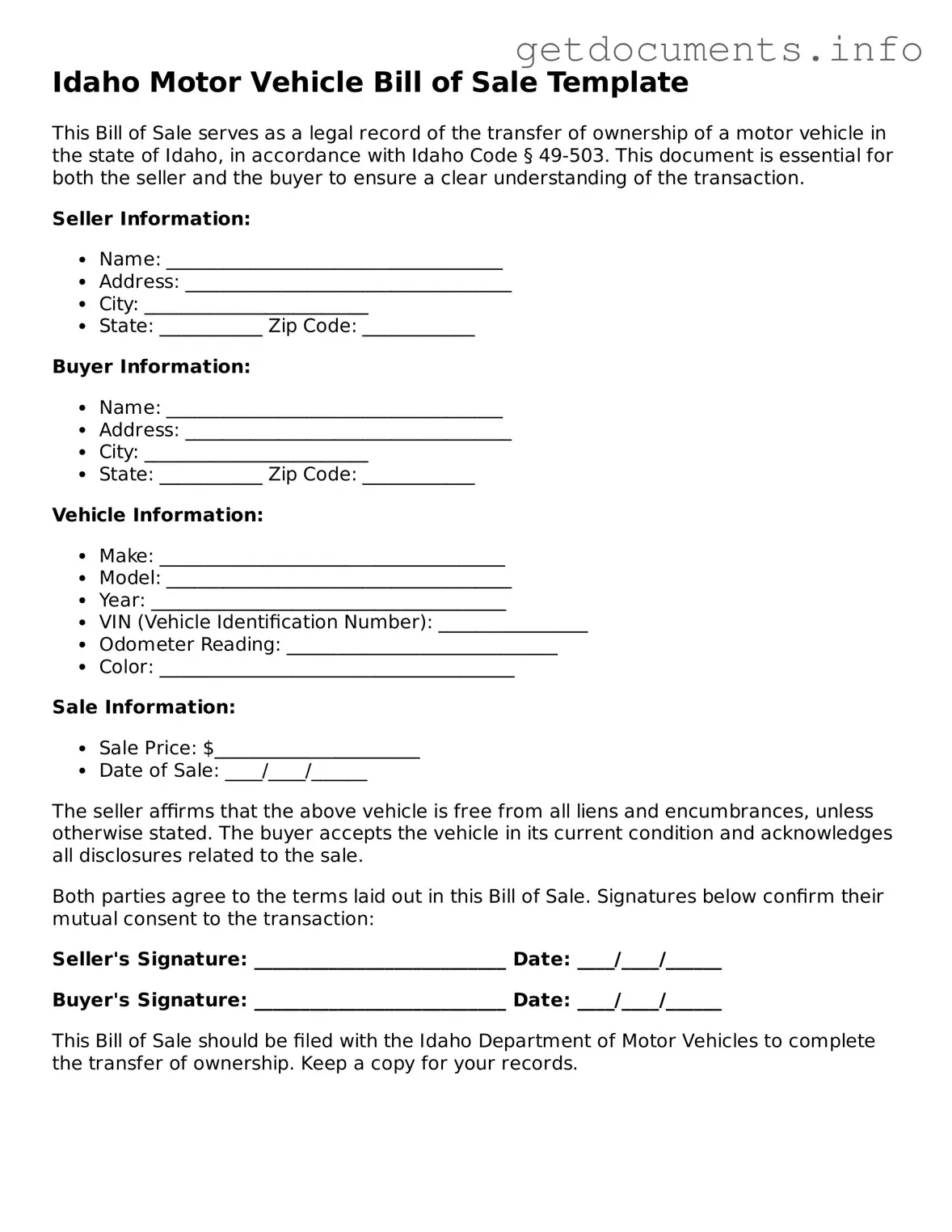Free Motor Vehicle Bill of Sale Template for Idaho
The Idaho Motor Vehicle Bill of Sale form is a crucial document that records the transfer of ownership of a vehicle from one party to another. This form serves as proof of the transaction and includes essential details such as the vehicle's identification number, sale price, and the names of both the buyer and seller. To ensure a smooth transfer process, it is important to fill out this form accurately.
Ready to complete your vehicle transaction? Click the button below to fill out the Idaho Motor Vehicle Bill of Sale form.
Access Motor Vehicle Bill of Sale Editor

Free Motor Vehicle Bill of Sale Template for Idaho
Access Motor Vehicle Bill of Sale Editor
Got places to be? Complete the form fast
Fill out Motor Vehicle Bill of Sale online and avoid printing or scanning.
Access Motor Vehicle Bill of Sale Editor
or
⇩ PDF File
